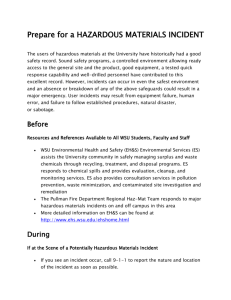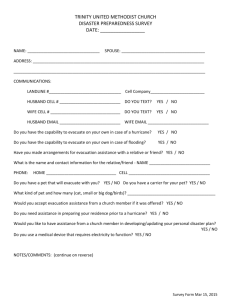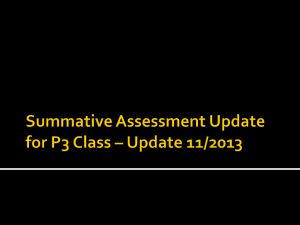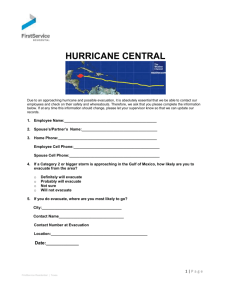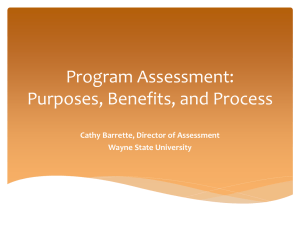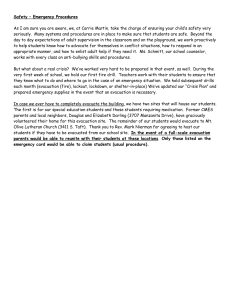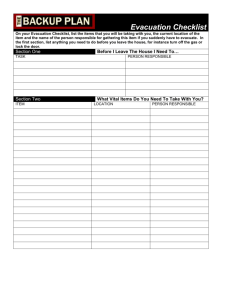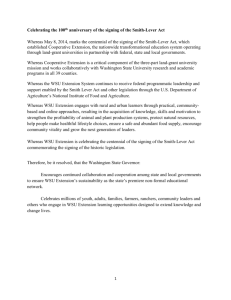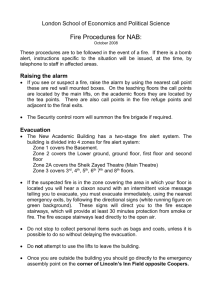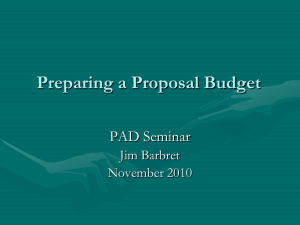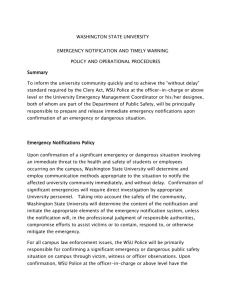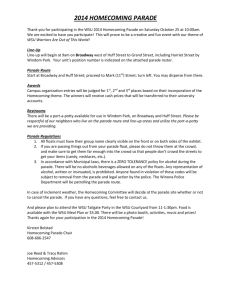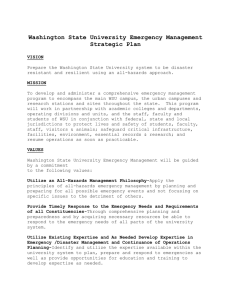Acts of Terrorism - Office of Emergency Management
advertisement
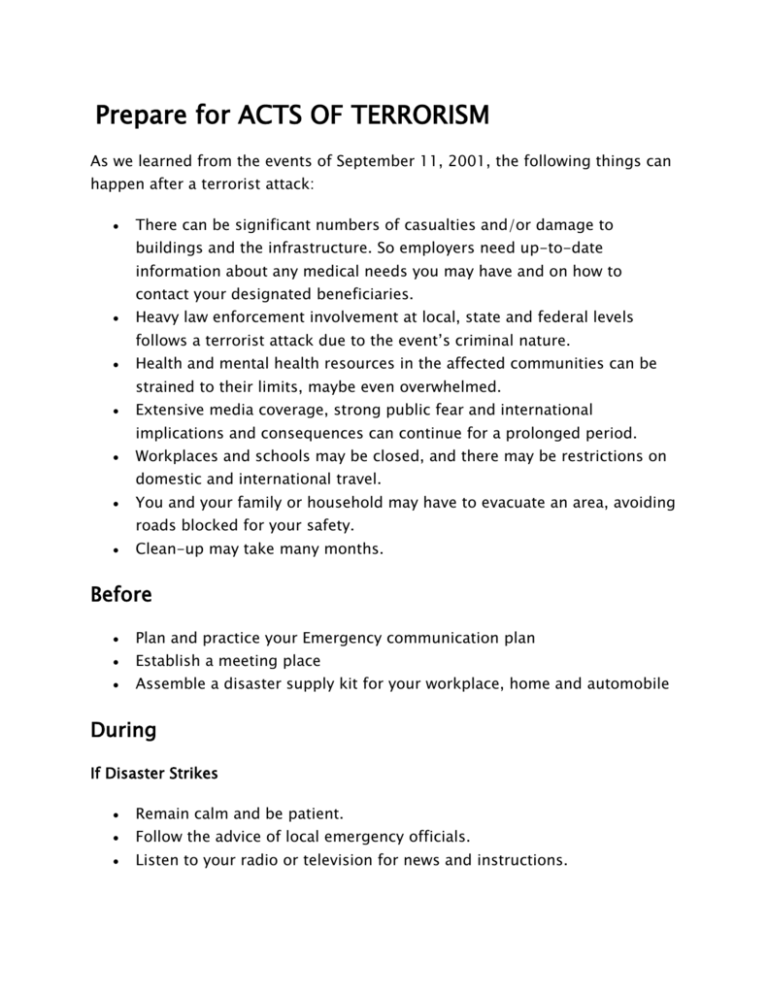
Prepare for ACTS OF TERRORISM As we learned from the events of September 11, 2001, the following things can happen after a terrorist attack: There can be significant numbers of casualties and/or damage to buildings and the infrastructure. So employers need up-to-date information about any medical needs you may have and on how to contact your designated beneficiaries. Heavy law enforcement involvement at local, state and federal levels follows a terrorist attack due to the event’s criminal nature. Health and mental health resources in the affected communities can be strained to their limits, maybe even overwhelmed. Extensive media coverage, strong public fear and international implications and consequences can continue for a prolonged period. Workplaces and schools may be closed, and there may be restrictions on domestic and international travel. You and your family or household may have to evacuate an area, avoiding roads blocked for your safety. Clean-up may take many months. Before Plan and practice your Emergency communication plan Establish a meeting place Assemble a disaster supply kit for your workplace, home and automobile During If Disaster Strikes Remain calm and be patient. Follow the advice of local emergency officials. Listen to your radio or television for news and instructions. If the disaster occurs near you, check for injuries. Give first aid and get help for seriously injured people. Do not use the telephone unless it is a life-threatening emergency. Shelter-in-place You can provide a minimal amount of protection to your breathing by covering your mouth and nose with a damp cloth. Close all windows Turn off all fans, heating and air conditioning systems Go to an above-ground room (not the basement) with the fewest windows and doors. Wet some towels and jam them in the crack under the doors. Stay in the room and listen to your radio until you are told all is safe or you are told to evacuate. Evacuation Authorities may decide to evacuate an area for your protection. Again, it is important to stay calm, listen carefully and follow all instructions. If you are told to evacuate, listen to your radio to make sure the evacuation order applies to you and to understand if you are to evacuate immediately or if you have time to pack some essentials. Do not use your telephone. Additional Information (links) Department of Homeland Security American Red Cross Centers for Disease Control and Prevention Federal Emergency Management Agency Environmental Protection Agency Washington State Department of Health Keep in the Loop-Staying Informed At Work WSU ALERT web site http://alert.wsu.edu Information from Supervisors/Directors/Deans Listen to local radio stations: KQQQ - 1150 AM; KHTR - 104.3 FM KMAX - 840 AM; KRFA - 91.7 FM; KWSU - 1250 AM WSU Today and WSU Announcements At Home WSU ALERT web site http://alert.wsu.edu Listen to local radio stations: KQQQ - 1150 AM; KHTR - 104.3 FM KMAX - 840 AM; KRFA - 91.7 FM; KWSU - 1250 AM Local Television Stations State of Washington Emergency Alert System (EAS)
